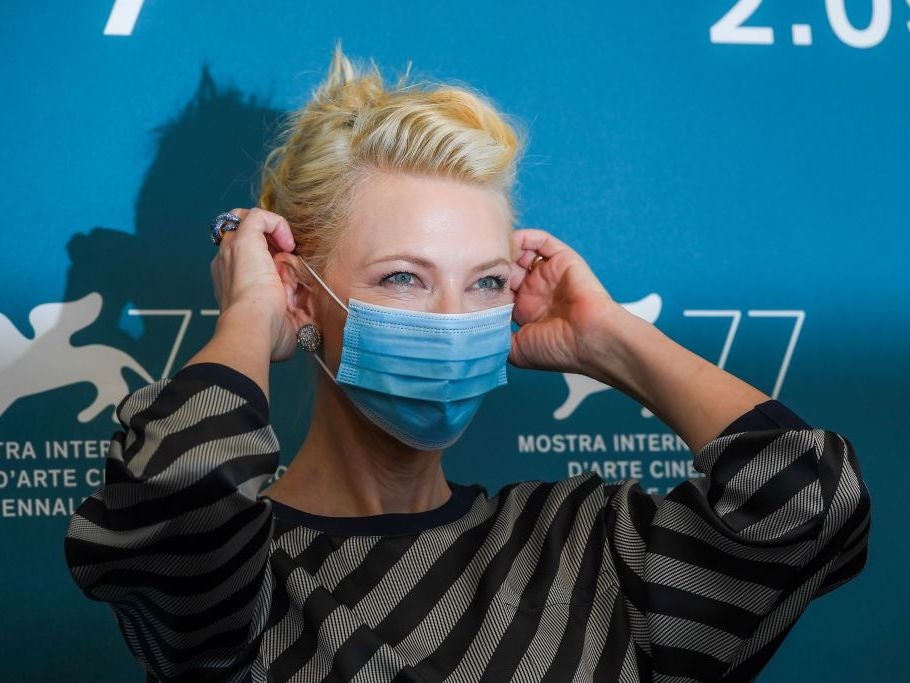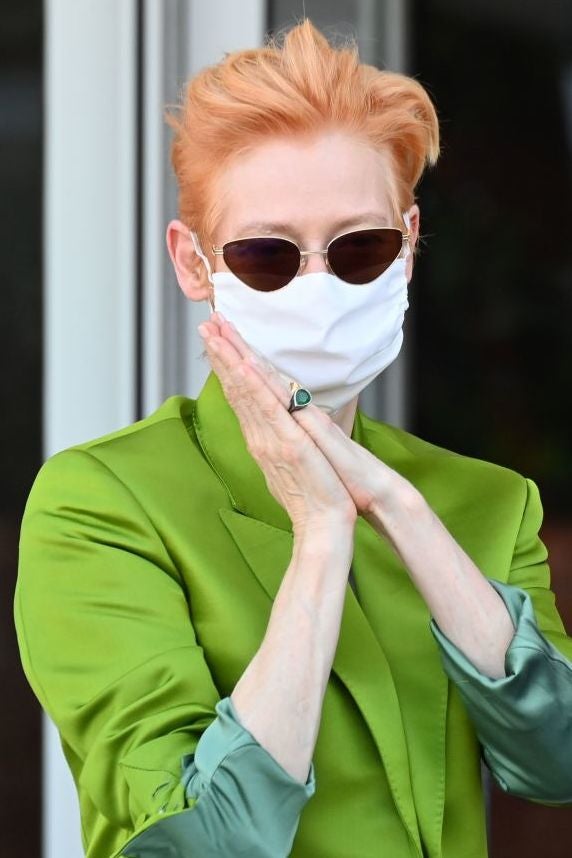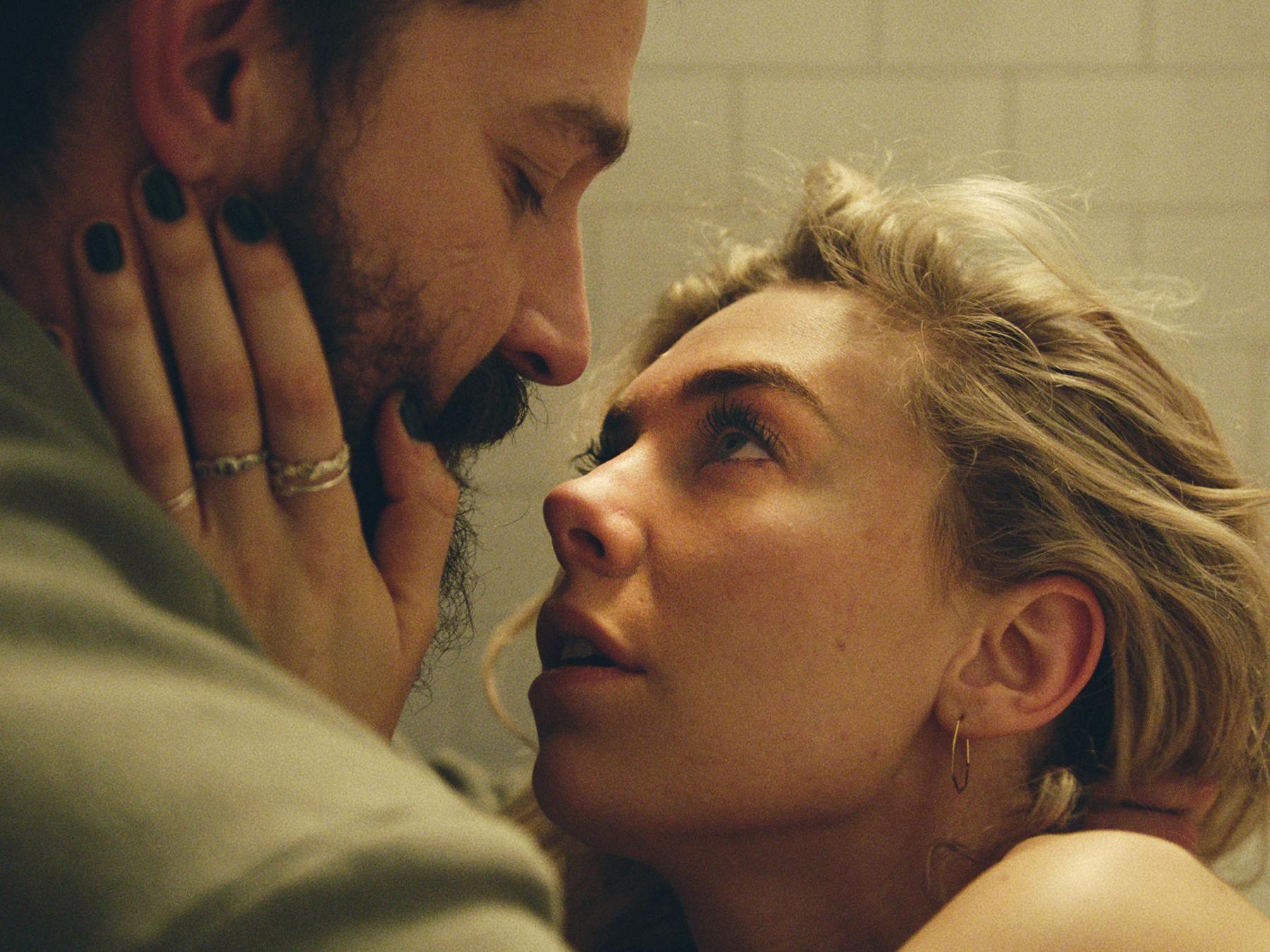This year’s Venice Film Festival is socially distanced, eerily quiet and lacking in Americans – but the show must go on
With stars in masks and a patchy line-up of movies, Venice 2020 is quite clearly the first festival of its kind to take place amid Covid-19. Geoffrey Macnab surveys the awkwardness

Your support helps us to tell the story
From reproductive rights to climate change to Big Tech, The Independent is on the ground when the story is developing. Whether it's investigating the financials of Elon Musk's pro-Trump PAC or producing our latest documentary, 'The A Word', which shines a light on the American women fighting for reproductive rights, we know how important it is to parse out the facts from the messaging.
At such a critical moment in US history, we need reporters on the ground. Your donation allows us to keep sending journalists to speak to both sides of the story.
The Independent is trusted by Americans across the entire political spectrum. And unlike many other quality news outlets, we choose not to lock Americans out of our reporting and analysis with paywalls. We believe quality journalism should be available to everyone, paid for by those who can afford it.
Your support makes all the difference.Thomas Mann’s celebrated novel, Death in Venice, made into a 1971 film by Luchino Visconti, is set during a cholera epidemic. It has been hard not to think of Mann during the early stages of the Venice Film Festival, which launched on Wednesday evening. This is the first major film festival to take place under the shadow of Covid-19.
During the festival’s opening ceremony, Tilda Swinton, receiving a lifetime achievement Golden Lion, spoke about what it means to “be in a room with living creatures and a big screen; what it means to be about to see a film in Venice – pure joy!”
“Wakanda forever! Nothing but love,” Swinton signed off. It was a rousing speech that deserved ovation but the cinema was, quite literally, half empty. Social distancing meant only half the seats were filled. The audience members were all in masks, which made cheering awkward. The red carpet outside the cinema was cordoned off, behind canvas covered iron fences, through which the public peeped to see the stars (jury members Cate Blanchett and Matt Dillon among them) enter the venue.
Swinton is in what might well turn out to be the best film in Venice this year, The Human Voice, a new 30-minute short directed by Spanish master Pedro Almodovar. Unveiled on Thursday morning, this fiery melodrama is a free adaptation of a Jean Cocteau’s 1930 play. Almodovar shot it at breakneck speed the moment the lockdown was over. Swinton plays a near-suicidal woman deep in a phone conversation with a lover who is about to abandon her after their four-year relationship. She hasn’t heard from him for three days and has been spending the time popping pills, watching DVDs like Kill Bill and Only Heaven Allows or reading Alice Munro, Truman Capote and F Scott Fitzgerald novels. She has also bought an axe.
The woman, who appears to be a model, lives in a modernist apartment which, in some self-reflexive joke on Almodovar’s part, is located in the middle of a huge, empty film studio. Swinton shows magnificent hauteur as the spurned lover, bringing desperation, pathos and irony to the role. The film is only half-an-hour long but she undergoes multiple costume changes as she talks to the man whose voice we never hear. “Women of my age are fashionable again,” she declares at one stage. The clients love her “pallor” and her mix of “melancholy and madness”. Almodovar fills the soundtrack with screeching violin music. Swinton shares the screen with her lover’s abandoned, masochistic dog. This very heady and enjoyable chamber piece ends on a suitably explosive note.
The rest of the programme is more patchy. The Americans haven’t travelled and the festival is therefore almost entirely bereft of the US discoveries that, in previous years, surfaced in Venice first before going on to Oscar glory. There are no equivalents to Birdman or last year’s Joker. One of the few Hollywood titles, due to screen later in the week, is One Night in Miami by Regina King (the star of If Beale Street Could Talk), making her directorial debut. This is about Cassius Clay as a young man (before he became Muhammad Ali), just after he has defeated Sonny Liston to become World Heavyweight champ. He spends a night celebrating at a hotel in one of black neighbourhoods, with three close friends, activist Malcolm X, singer Sam Cooke and football star Jim Brown. Together, they hope to change the world.

The opening selection, Daniele Luchetti’s The Ties, was underwhelming, a plodding Italian family drama that flits between Naples in the early 1980s and the present day. Radio presenter and minor media personality Aldo (Luigi Lo Cascio) is a doting husband to his fiery wife Vanda (Alba Rohrwacher), and devoted father to his young son and daughter. Then, one night, after bath time for the kids, he suddenly blurts out that he has slept with another woman. In subtle, painstaking fashion, Luchetti explores the way that Aldo’s affair upends the lives of every member of the family. Years later, its after-effects are still being felt. This is well-crafted drama about lust, betrayal and domestic cowardice. Its best moments are those involving the kids, who look on in bewilderment, trying to make sense of their father’s actions. However, a downbeat, small-scale Italian art-house movie seems a strange choice with which to launch a festival like Venice.
One movie everybody seems to like is young Greek director Christos Nikou’s charming and subversive debut feature, Apples, the opening title in the festival’s Orizzonti section. Apples was conceived long before coronavirus but is very topical, set during a pandemic that causes sufferers to experience sudden memory loss. Aris (Aris Servetalis) is a victim of the virus. The treatment is to perform a series of tasks to re-build his memory. He records each event – drives in the country, dance nights, visits to the cinema, sexual encounters – with a polaroid camera. Wherever he goes, he encounters other sufferers doing exactly the same thing. Nikou, who cut his teeth as an assistant director for Richard Linklater and Yorgos Lanthimos, told his lead actor to study Jacques Tati and Jim Carrey before shooting began. The instruction worked. Servetalis gives a wry comic performance as the bewildered hero, trying to piece together his identity. Apples also features one of the best dance sequences in recent cinema, in which Aris and friends perform the twist in very deadpan fashion. This may have been ripped off from Anna Karina in Jean-Luc Godard’s Bande a Part (1964), but it still makes enrapturing viewing.

Stars are in short supply on the Lido this year. In the absence of big US names, the British are here in considerable numbers. Vanessa Kirby (Princess Margaret in The Crown) has two new films, Pieces of a Woman directed by Hungarian auteur Kornel Mundruczo (and exec produced by Martin Scorsese) and Mona Fastvold’s The World to Come. Jim Broadbent and Helen Mirren are expected in town for the premiere of Roger Michell’s The Duke; Romola Garai will be in Venice with her new film, Miss Marx, in which she plays Karl Marx’s youngest daughter; James Norton is Venice-bound with Uberto Pasolini’s Nowhere Special in which he plays a Belfast window cleaner and single dad. Meanwhile, Italian master Luca Guadagnino is presenting both his new fashion documentary, Salvatore – Shoemaker of Dreams (about Ferragamo) and his Covid-19 documentary short, Fiori, Fiori, Fiori!
Venice is the oldest film festival in the world. It was first held in 1933 and is celebrating its 77th edition this year. For all the inconveniences caused by Covid regulations – the temperature checks, queuing, cumbersome booking system and strict seating policy – the event is carrying on much as it always does. The Biennale, which organises the festival, has gone to extraordinary lengths to ensure its smooth running. Defying stereotypes about chaotic Italian bureaucracy, the festival is extremely well organised, even if the local carabinieri still take a perverse pleasure in herding journalists behind security stands for just long enough to ensure they miss their screenings. Rivals from the Cannes and Berlin festivals will be looking on with envy and admiration as the Venice Biennale proves that it is still possible to stage a physical event of this magnitude during a pandemic.
The Venice Festival runs 2-12 Sept, https://www.labiennale.org/en/cinema/2020
Join our commenting forum
Join thought-provoking conversations, follow other Independent readers and see their replies
Comments